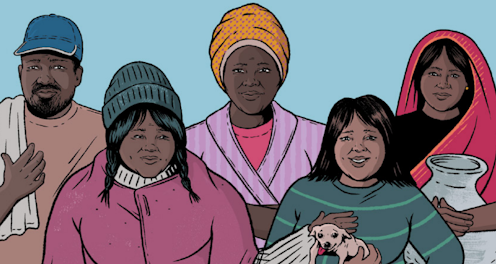How do we teach young people about climate change? We can start with this comic
- Written by The Conversation

We know young people are “angry, frustrated and scared” about climate change. And they want to do more to stop it.
However, the school system is not set up to help them address their concerns and learn the information they seek.
There are no explicit mentions of climate change in the Australian primary school curriculum and it is mainly taught through STEM (science, technology, engineering, mathematics) subjects in high school.
Read more: How well does the new Australian Curriculum prepare young people for climate change?
More broadly, the main ways we talk about climate in the community and media are focused on science and economics. They tend to involve abstract ideas such as “the planet is warming” or “rainfall is more unpredictable”. While these are important components, they overlook the social, cultural and psychological ways people around the world are affected by climate change.
So, how can we better support schools and teachers to approach climate change in a way that will suit young people’s interests and concerns?
Our comic
We are geography and environment researchers who have written a comic that looks at how people around the world experience climate change. This is aimed at high school students, but will also appeal to university students and the broader public.
Called Everyday Stories of Climate Change, it looks at the ways low-income families have had to adapt to climate change in five countries across three continents.
It begins with a student, waking up in Australia and heading to school. Here the teacher notes that climate change is impacting people around the world, “today we are going to explore some of these places”.
For example, in Bangladesh, sea-level rise has contributed to the salinity of the local river. So women must walk hours to get fresh water from another river. In Puerto Rico, after hurricane Maria, people struggle to get nutritious food and the streets are too dirty for the kids to play outside. In Barbuda, the government is trying to displace people from their lands, so that private businesses can build luxury hotels after hurricane Irma.







